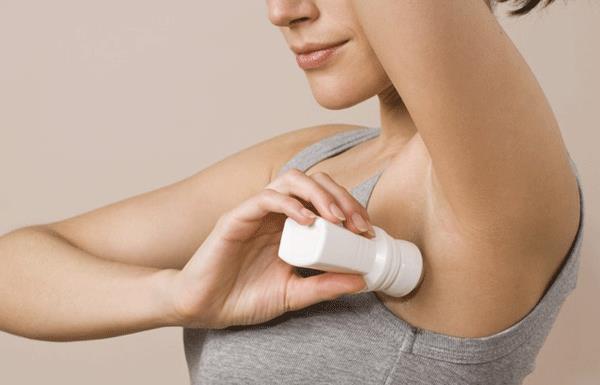There are beliefs that breast-feeding can be believed to be "old-fashioned", but in fact, not all rumors are true because doctors have given false proof!
content
Myth: You should stop using deodorants every day
Myth: You shouldn't take any pain relievers
The rumor: Mom shouldn't drink coffee
Myth: If you want to lose weight after giving birth, you should cut back on calories
The rumor: You can drink as much wine as you like, it's okay
After birth , the period of breastfeeding is most important. There are hundreds of thousands of things to worry about in order not to affect the quality of your baby's milk. Should moms give up their morning coffee or scented shower gel bottles to make them the safest baby? The following facts will help mothers distinguish between safe and unsafe things when breastfeeding.
During lactation , because babies are constantly in contact with nipples and breasts, mothers are always worried that daily activities of taking care of themselves will affect the baby's development. MarryBaby will help moms decode the truth about what affects the secretion of milk, as well as the quality of milk for your baby.
Myth: You should stop using deodorants every day
Truth: You may have heard that in deodorant products contain aluminum, which is an ingredient in preventing sweating, is also toxic to breast tissue and breast milk. Therefore, you always choose a deodorizer that does not contain aluminum, but this precaution is not necessary.

Don't hesitate to use a deodorant if you really need it
There is no scientific evidence to suggest that breastfeeding mothers should not use deodorants. Usually aluminum is present a lot in the surrounding environment, mostly in food, not in skin care products, and aluminum has almost no effect on breast milk.
However, mothers may consider switching to a fragrance-free one, as infants are very sensitive to scents, and avoid products with strong scents on or near nipples - including shower gel. . Pay special attention to spray deodorants, because when sprayed, the product can stick to the nipples and cause an unpleasant scent to your baby.
Myth: You shouldn't take any pain relievers
Truth: You don't have to endure such clinging pain. According to a report by the American Academy of Pediatrics (AAP), pain relievers and fever reducers like ibuprofen, acetaminophen, and naproxen are generally still administered to mothers who breastfeed, though each drug. has its own benefits and risks.
However, there are a few over-the-counter drugs that are best not to take. For example, decongestants (decongestants) can reduce milk production, while antihistamines can make a mother sleepy and reduce the ability to produce milk.
Ideally mom should consult a doctor before taking any medicine. Even if it is a drug that is safe for mothers during lactation, mothers should exercise caution: Use the lowest dose for the shortest amount of time.

Taking antibiotics while breastfeeding can cause milk loss? How will taking antibiotics while breastfeeding affect breast milk output and infant health? What medicine is safe, what medicine is not? The following article will help mothers answer these questions thoroughly
The rumor: Mom shouldn't drink coffee
Fact: After a tiring night of four or five waking up your baby, don't be afraid to have a cup of coffee to wake up the next morning. Research shows that the amount of caffeine your baby receives is only a very small fraction of the coffee you drink.

Drinking a cup of coffee after a bad night's sleep isn't a big deal!
However, mothers should limit 1-3 cups of coffee a day. Dose of 5 cups of coffee or more, caffeine from breast milk can accumulate in the baby's body, causing the baby to fall into a state of restlessness and frustration.
Myth: If you want to lose weight after giving birth, you should cut back on calories
Fact: Breastfeeding helps you burn about 500 calories a day. Many mothers can regain their pre-pregnancy weight thanks to daily breastfeeding.
Mom noted, despite the impatience to lose weight quickly, make sure you get at least 1,800 calories per day and meals that are balanced with nutrients, high in healthy fats like avocados and nuts, along with fruit. , vegetables, beans and lean meats.
The best time to start the diet is two months after birth, when milk production has stabilized and the body is back on track. The best way to let moms know if she eats the right amount is to listen to her body and eat when she feels hungry.
The rumor: You can drink as much wine as you like, it's okay
Fact: Small amounts of alcohol can also pass into breast milk, altering the taste of breast milk, as a baby suckles like drinking alcohol. Furthermore, drinking alcohol can reduce lactation. Worse yet, alcohol is a neurotoxin that affects infant brain development. That is the reason why breastfeeding mothers absolutely should not drink alcohol.
There is no specific data on how much alcohol from a mother will convert into milk and into the baby's body, because alcohol is metabolized differently by people. You can drink a small glass of champagne on a special occasion, but you should not drink it during the "happy hour" every night, it will affect your breastfeeding!

Beer - Milk drink? Drinking beer helps to benefit milk is one of the experiences passed on between mothers. However, is it really safe to drink beer or other alcoholic beverages while breastfeeding? Find out with MarryBaby!















